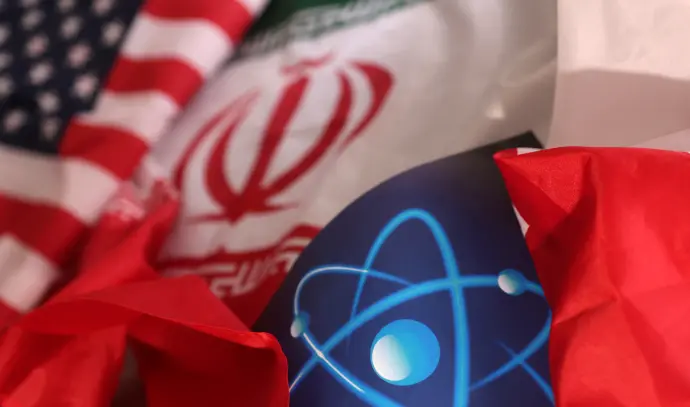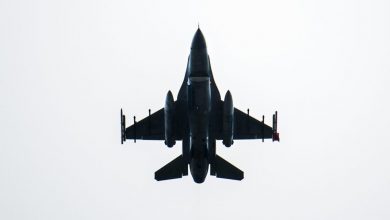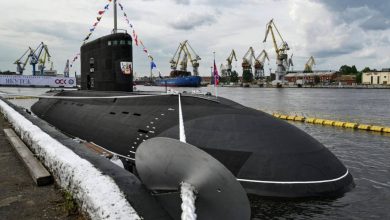Analysis: Five years after Trump’s withdrawal, is restoring Iran nuclear deal possible?

Expert says prospects of return to 2015 deal are ‘fast diminishing,’ although it does not mean another form of diplomatic agreement is impossible
Five years after former President Donald Trump withdrew the US from the nuclear agreement that world powers struck with Iran in 2015, efforts to revive the deal have hit an impasse.
“It is clear to me that we cannot prevent an Iranian nuclear bomb under the decaying and rotten structure of the current agreement,” Trump said when announcing his decision on May 8, 2018. “The Iran deal is defective at its core. If we do nothing, we know exactly what will happen.”
Trump is no longer president of the US, but President Joe Biden’s administration has yet to restore the 2015 nuclear agreement, also known as the Joint Comprehensive Plan of Action (JCPOA), despite years of efforts.
The deal was signed by Iran, six world powers known as the P5+1, referring to the UN Security Council’s five permanent members (China, France, Russia, the UK, and US) plus Germany, and the EU after two years of negotiations.
Under the landmark agreement, Iran agreed to enrich uranium only up to 3.67% purity in exchange for the removal of sanctions.
A report by the UN’s nuclear watchdog, the International Atomic Energy Agency (IAEA), published in February found that Iran’s nuclear enrichment has now reached up to 83.7%, just below the 90% purity required for a standard nuclear weapon.
Meanwhile, there has been no progress in EU-mediated talks in the Austrian capital Vienna since September 2022.
Five years after Trump’s exit, many wonder if a return to the 2015 Iran nuclear deal is imminent.
According to Trita Parsi, executive vice president of the Quincy Institute for Responsible Statecraft in Washington, D.C., the prospects of being able to return to the JCPOA are “fast diminishing,” although it does not mean that another form of diplomatic agreement is impossible.
“The basic give and take of the original JCPOA is starting to expire because of, on the one hand, Iran’s significant nuclear advances, and on the other hand, the US has fast diminishing leverage,” he told Anadolu, adding that something new needs to be thought through and envisioned in order to be able to resolve this.
“That doesn’t mean that there aren’t principles within the JCPOA that can be kept. Not all of it should be abandoned. But at this point, it seems increasingly unlikely that the original JCPOA can be revived,” he added.
Describing the 2015 deal as “critical,” he said it prevented Iran from being able to build a nuclear weapon while avoiding a region-wide war between the US, Israel, and Iran.
“That war would have been tremendously destabilizing, and it will continue to be destabilizing if it were to take place today,” he said.
– EU’s draft proposal to revive nuclear deal
In August 2022, the EU put forward a draft on reviving the nuclear deal after months of negotiations in Vienna. As coordinator of the deal, EU foreign policy chief Josep Borrell recently came up with a proposal on lifting US sanctions and ensuring Iran’s compliance with nuclear requirements.
Parsi noted that the Iranians came in with new demands at the last minute, calling it a “huge mistake.”
“Then for the last couple of months, the US has shown no interest in prioritizing the JCPOA, mindful of the protests in Iran and the Iranian government’s brutal repression of its own people,” he continued.
“That’s where we are right now: On the one hand, the Iranian side that wants to go back to a draft that they themselves rejected, and an American side and the Western side that no longer is interested in the very same package that they themselves presented,” he said.
– Russia’s war in Ukraine
Asked about the impact of the Russian war in Ukraine on the nuclear talks, Parsi said the Russians “seemed to be less than interested in actually getting a JCPOA.”
A secondary effect, according to Parsi, is that there is now a “greater impetus” among many countries in the world towards “shifting their trade away from the dollar.”
“This is something the Iranians welcome because it helps them circumvent US sanctions,” he said, noting “there is no longer P5+1 unity.”
Asked about Israel’s objections to the 2015 nuclear deal, he said the Iranian nuclear program continues to grow, adding: “Iran gets more leverage, while the West is actually losing leverage, and the Israelis have absolutely no solution, an alternative to the JCPOA.”
“All they did is destroy something that worked while leaving the rest of the world scrambling,” he said.
– ‘Nuclear warming’
As hopes of reviving the deal fade, concerns have mounted that conflict could rapidly take its place.
Asked about the possibility of a nuclear war, Parsi said he does not think the US has “any appetite whatsoever for a war with Iran.”
“But it may not be America’s decision, because the Israelis may very well take military action and the United States will be dragged into that conflict, and that conflict will become a region-wide conflict,” he added.
He said the Biden administration has “shifted the US position” to back Israel’s right to act.
“This is a very different position compared to previous administrations, in which the US worked very hard to make sure that the Israelis would not take military action,” he said. “That’s a very dangerous shift that the Biden administration has done.”





